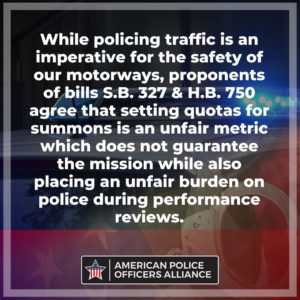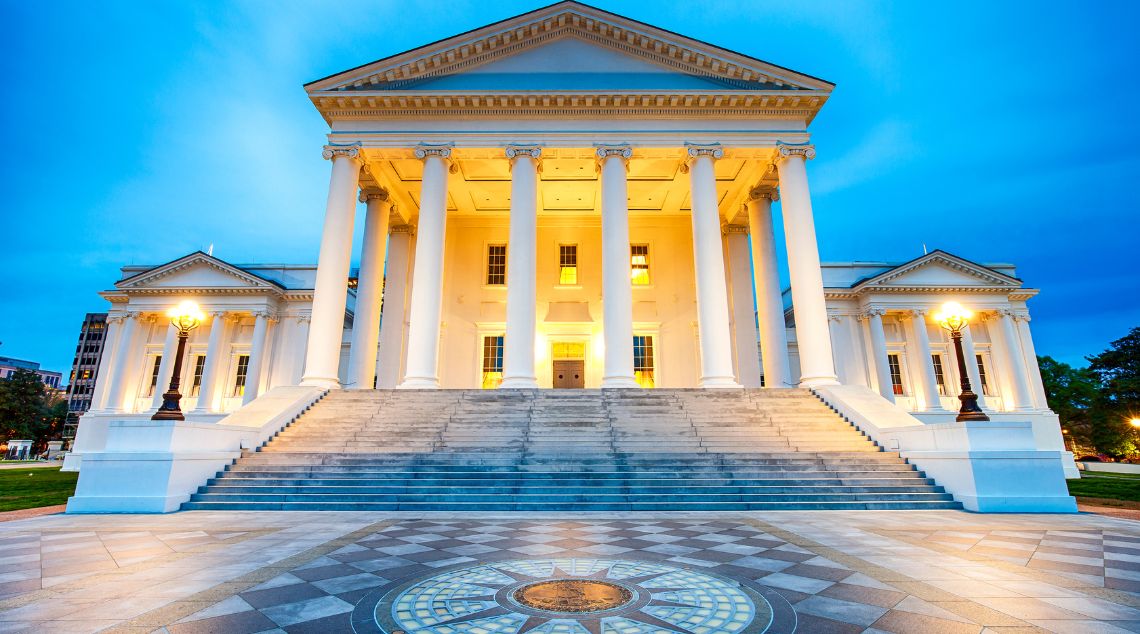Virginia police officers and motorists alike breathed a sigh of relief earlier this year when Governor Glenn Youngkin (R) signed bills S.B. 327 & H.B. 750. These bills effectively end the practice of “ticket quotas” in the state.
As noted in an op-ed by Nick Sibilla for The Washington Post, “…under the new bills, police departments, sheriff’s offices and the Virginia State Police will be barred from setting any formal or informal quota on the number of arrests or summonses a law enforcement officer is expected to make.”
While policing traffic is an imperative for the safety of our motorways, proponents of these new bills agree that setting quotas for summons is an unfair metric which does not guarantee that mission while also placing an unfair burden on police during performance reviews.
One former law enforcement officer quoted by ABC 8 News, Sean McGowen, stated the following:
“These officers are fully trained. They go through an extensive academy, and this is local and state. They go through an academy, they go through a field training process. By the time they come out of that, they know when it’s appropriate to place a citation, write a ticket, or to give a warning or to just talk to the person, even just a verbal warning.”
Another former officer quoted by the outlet, Daniel Garasimowicz, maintained that officers were pressured to meet quotas or face repercussions in his former departments.

“No trooper or officer’s hand should be forced to write a certain amount of summonses or uniform summonses. We believe it should be the trooper’s and officer’s discretion,” he said.
In a report from last year, ABC 8 News also noted evidence of supervisors within the Virginia State Police Department sending memos to troopers informing them that they must meet certain quotas to maintain their patrol duties.
“There is no reason you should not be writing 5 tickets minimum on a typical day (that’s one every two hours). If you are on free patrol, you should be writing more if you want to remain on free patrol,” it said.
In addition to being unfair to officers, Sibilla argues in his piece that these quotas effectively impose a proxy taxation system on the public:
“Because raising taxes is politically unpopular, many municipalities instead pad their budgets by imposing fines and fees, turning traffic cops into impromptu tax collectors. In fiscal 2019, Virginia generated a staggering $298 million in revenue from fines, fees and forfeitures — the fourth-highest in the nation — according to the Urban Institute.”
Ultimately, this action by the Commonwealth of Virginia is one example of police reform that is supported by both law enforcement and the people. For law enforcement, it abolishes a practice which coerces officers to tie their career trajectories to arbitrary numbers and leaves little room for discretion. For the public, it officially ends what activists argue is an unjust practice often used as a pretext for stopping drivers to look for other crimes and boost state revenues. A win-win!
Since 2020, police reform has been one of the largest platforms taken on by the Democratic Party. The death of George Floyd was leveraged by Democrats and Leftwing activists as a watershed moment exposing the “institutional racism” of America’s law enforcement which must be dismantled and remade in the image of the American Left. Did Democrats overpromise and under-deliver?









